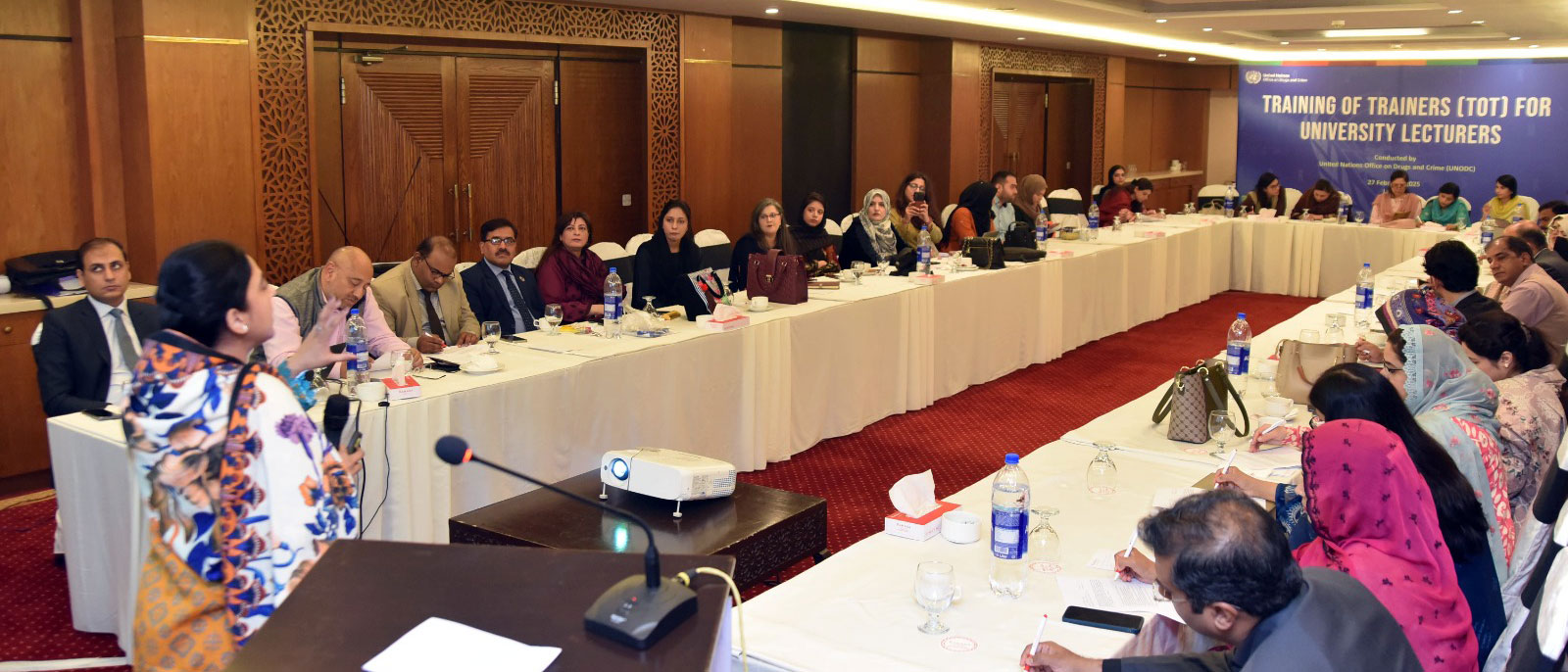
27 February 2025, Lahore – The United Nations Office on Drugs and Crime (UNODC) has successfully concluded a month-long Training of Trainers (ToT) Programme hosted by Punjab University, reinforcing its commitment to promoting integrity, ethical leadership in higher education and resultantly in businesses across Pakistan. With an impressive participation of 45 university lecturers, this initiative marks a transformative step in training the fourth cohort of ethics-driven educators prepared to instill business integrity in the next generation of employees.
A Collaborative Effort in Higher Education
This cohort of the ToT gathered faculty members from Punjab University, The University of Lahore, University of Central Punjab, and the National University of Computer and Emerging Sciences. Diversity in representation underscores the increasing recognition of business integrity education as an essential component of academic curricula. Throughout the Programme, participants engaged in dynamic discussions, interactive case studies, and hands-on teaching demonstrations designed to strengthen their capacity to deliver UNODC’s specialized business integrity and ethics modules.
Women at the Forefront of Change
With women comprising over 65% of the participants, this cohort of the ToT also reflected a progressive shift toward gender-inclusive leadership in ethics education. Female educators actively engaged in peer learning, sharing insights on how integrity education can drive social and professional change. One participant noted, “This programme has been an eye-opener, proving that ethical leadership is not just an academic subject but a movement that we, as educators, must champion.”



Beyond Theory: A Practical Approach to Teaching Integrity
The ToT programme focused on equipping educators with effective methodologies for embedding business integrity into their teaching frameworks. One of the key highlights of this training was the real-world applicability of the modules. Educators practiced scenario-based teaching techniques, empowering them to navigate complex ethical dilemmas in classroom discussions. “This training has fundamentally changed my perspective on how integrity should be taught. I feel better prepared to instill these values in my students,” shared one participant.
Setting the Foundation for Sustainable Impact
The ripple effects of this initiative are already visible. Institutions such as the University of Lahore has already adapted the contextualized modules as a standalone course, ensuring that ethical leadership and corporate responsibility remain cornerstones of higher education. Through academic collaboration and knowledge-sharing, UNODC is not only strengthening educational standards but also laying the foundation for a more transparent and responsible business landscape in Pakistan.
As this latest ToT cohort steps back into their classrooms, they do so not just as educators, but as changemakers, committed to embedding business integrity at every level of learning. With their efforts, Pakistan’s next generation of business leaders will be better equipped to uphold ethical principles in both public and private sectors, reinforcing the country’s commitment to sustainable development and good governance.
UNODC remains dedicated to supporting higher education institutions in advancing business integrity and ethics, ensuring that these values continue to shape the leaders of tomorrow.
